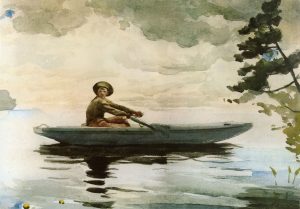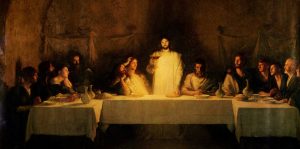I’ve worked at my job full-time for 25 years. When I was hired, my employers explained among other things, the pay schedule—which changed over the years from monthly to bi-monthly, to every other week. They delivered faithfully. Never once did it cross my mind that if could be any other way.
In Matt. 5: 19-34 Jesus talks about God supplying what we need from food to clothing. He builds the argument with pictures: “Look at the birds of the air; they do not sow or reap or store away in barns, and yet your heavenly Father feeds them;” and, “If that is how God clothes the grass of the field, which is here today and tomorrow is thrown into the fire, will he not much more clothe you…?”
I naturally tend to worry about this or that. (Hate change to begin with.) As a result I have understood “Do not worry” to be just another commandment to be burdened with. In fact most sermons on the subject treat it as such—justifying Jesus’ discourse with his closing reasoning, “Therefore do not worry about tomorrow, for tomorrow will worry about itself. Each day has enough trouble of its own.” (Any good psychologist could have told me that).
But the thrust of Jesus’ argument is, “Seek first his kingdom and his righteousness, and all these things will be given to you as well.”
So like my paycheck, “Do not worry,” is about God’s faithful provision, and a conclusion—not a commandment.
And Jesus wasn’t talking about worry. He was talking about trust.
Peter uses the same tact in his first letter. Though it seems he is talking about marriage and employment behavior, he’s really talking about trust. Removing the apparent commandments to “do this,” or “be that” from the context in chapters 1-4 (the, “do not worry” phrases), it reads as an inspiring epistle of encouragement.
And his advice on servants, husbands and wives are applications of two thoughts: “When they hurled their insults at him, he did not retaliate; when he suffered, he made no threats. Instead, he entrusted himself to him who judges justly” (1 Peter 2: 23); and “Therefore, since Christ suffered in his body, arm yourselves also with the same attitude, because whoever suffers in the body is done with sin. As a result, they do not live the rest of their earthly lives for evil human desires, but rather for the will of God“ 1 Peter 4: 1,2).
Like seeking first the kingdom of God, we “entrust” ourselves to God. to make any judgments. Not our job.


